Table of Contents
- 1. Introduction
- 2. Understanding Hard Water and Its Impact
- The Challenges of Hard Water in Apartments
- 1. Plumbing and Appliance Damage
- 2. Increased Energy Costs
- 3. Skin and Hair Issues
- 4. Aesthetic Concerns
- 3. Factors to Think About
- 1. Type of Water Softener
- 1.1 Salt-Based Water Softeners
- 1.2 Salt-Free Water Softeners
- 2. Water Softener Capacity
- 3. Space Considerations
- 4. Ease of Maintenance and Upkeep
- 5. Energy Efficiency and Environmental Impact
- 6. Noise Level
- 7. Budget and Cost of Ownership
- 4. Conclusion
Introduction
Choosing the right water softener for apartment living, especially in a bustling city like Bangalore, can be a daunting task. Hard water is a common issue that can affect not only the plumbing and appliances but also the overall comfort of your home. To address these challenges, selecting an effective water softener system for home use is crucial. This guide explores the key factors to consider when selecting a water softener for your apartment bathroom, ensuring you make an informed decision that enhances your daily life.
Understanding Hard Water and Its Impact
High concentrations of minerals, particularly calcium and magnesium, can be found in hard water. While these minerals are not harmful to health, they can cause significant problems for your home’s plumbing, appliances, and even your skin and hair. Understanding these impacts is the first step in selecting the right water softener for an apartment.
The Challenges of Hard Water in Apartments
1. Plumbing and Appliance Damage
The minerals in hard water can build up as scale inside pipes and appliances, leading to reduced efficiency and potential damage over time. This scaling can clog showerheads and faucets, and shorten the lifespan of water heaters and dishwashers.
- Effect: Increased maintenance costs and potential replacements.
- Solution: Using a water softener for bathroom to reduce mineral buildup.
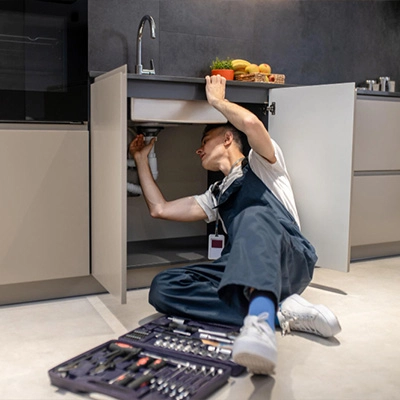

2. Increased Energy Costs
When appliances and plumbing become clogged with scale, they require more energy to operate efficiently. This can lead to higher electricity bills, particularly for water heaters.
- Effect: Higher energy consumption and increased costs.
- Solution: Installing a water softener system for apartment use to maintain efficiency.
3. Skin and Hair Issues
Hard water can cause skin to feel dry and irritated, and hair to become brittle and difficult to manage. The minerals interfere with soap and shampoo’s ability to lather and rinse away cleanly, leaving a residue.
- Effect: Discomfort and increased use of skincare and haircare products.
- Solution: A water softener for hard water can mitigate these issues.

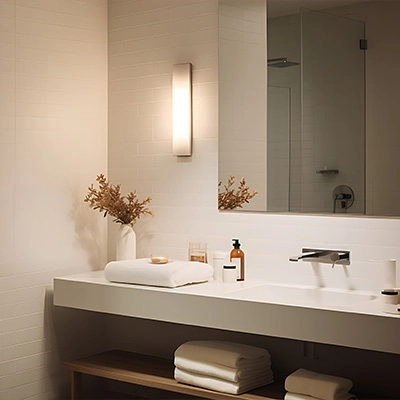
4. Aesthetic Concerns
Hard water can leave unsightly spots on dishes, glassware, and fixtures, and cause clothes to look dingy even after washing.
- Effect: Extra cleaning and potential damage to items.
- Solution: Using a hard water filter for apartment to maintain the aesthetic quality of your belongings.
Factors to Think About
When selecting a water softener for apartment in Bangalore, several key factors should be considered to ensure the system meets your needs and fits your living space.
1. Type of Water Softener
There are different types of water softeners available, each with its own set of advantages and limitations.
Salt-Based Water Softeners
These are the most common and effective for removing hardness minerals through an ion exchange process. They require regular salt refills and maintenance but provide consistent soft water.
- Pros: Highly effective at softening water and widely available.
- Cons: Requires ongoing maintenance and can add sodium to the water.
Salt-Free Water Softeners
These systems use a process called template-assisted crystallization to prevent scale buildup. They don’t remove minerals but alter them to prevent sticking.
- Pros: Maintenance-free and eco-friendly as they don’t use salt.
- Cons: Less effective for very hard water and don’t remove minerals from the water.
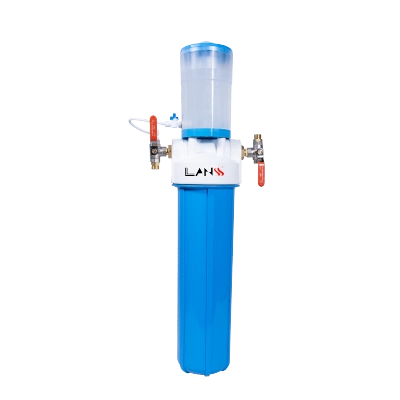
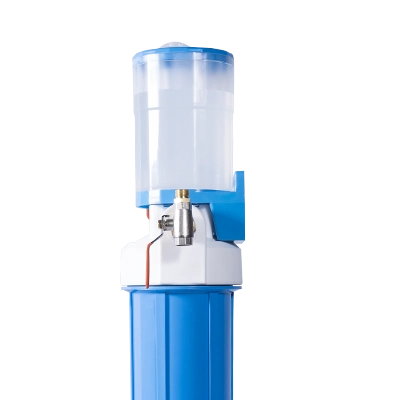
2. Water Softener Capacity
Choosing a water softener with the right capacity is crucial for ensuring it can handle your household’s water usage without frequent regenerations.
- Consideration: Match the softener’s capacity to your water usage and hardness level.
- Tip: Larger capacity models require less frequent maintenance.
Tip: Listen for unusual sounds and check for standing water around the unit, as these can be signs of problems.
3. Space Considerations
Not all salt is created equal. Using the right type of salt in your water softener system for apartment is essential for preventing issues like bridging and maintaining system efficiency.
- Consideration: Measure the area where you plan to install the softener and choose a model that fits.
- Tip: Compact or cabinet-style units are ideal for tight spaces.
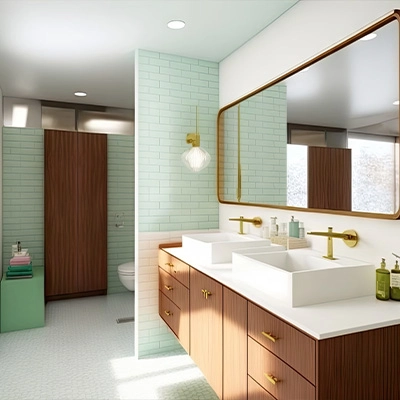
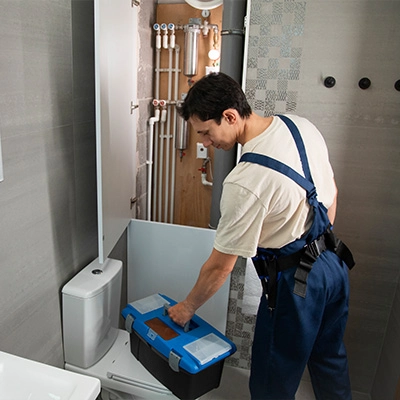
4. Ease of Maintenance and Upkeep
Regularly inspect your water softener for apartment for leaks or operational issues. Addressing these problems early can prevent major repairs.
- Consideration: Look for systems with user-friendly maintenance features.
- Tip: Automated systems can simplify upkeep.
5. Energy Efficiency and Environmental Impact
Selecting an energy-efficient water softener can reduce your utility bills and minimize environmental impact.
- Consideration: Check for energy-efficient models that use less water and power
- Tip: Look for systems with eco-friendly certifications.
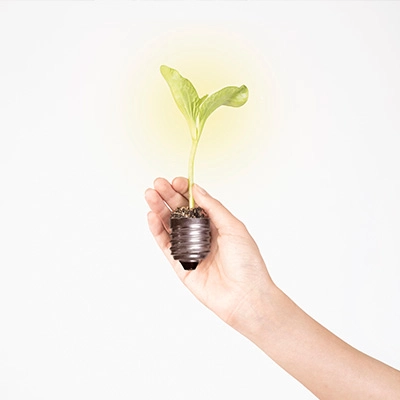
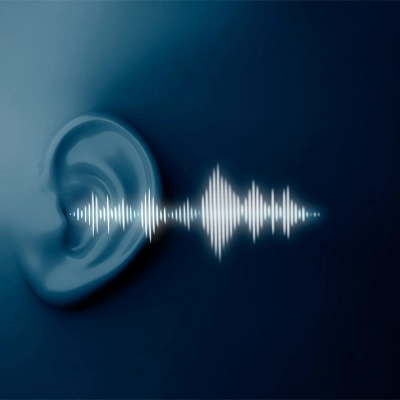
6. Noise Level
Water softeners can produce noise during regeneration cycles. In an apartment, where space is shared, quieter models are preferable
- Consideration: Research the noise levels of different models.
- Tip: Place the softener in a less frequented area if noise is a concern.
7. Budget and Cost of Ownership
The initial cost of the water softener is just one part of the equation. Consider the long-term costs, including maintenance, salt, and potential repairs.
- Consideration: Compare the total cost of ownership over several years.
- Tip: Balance upfront costs with ongoing expenses to find the best value.
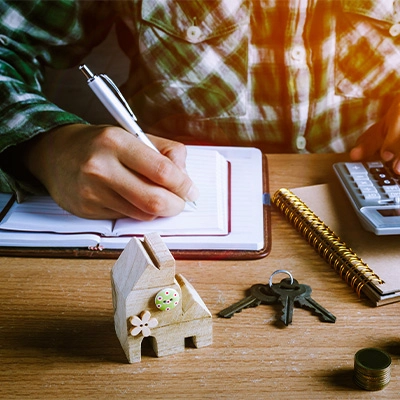
Conclusion
Selecting the right water softener for an apartment involves balancing several factors to find a system that fits your space, meets your water usage needs, and aligns with your budget. By understanding the challenges of hard water and considering the type, capacity, and maintenance needs of the softener, you can make an informed decision that enhances your apartment living experience. For those living in Bangalore, where hard water is a common issue, investing in a quality water softener for bathroom use is essential for maintaining the comfort and efficiency of your home.
